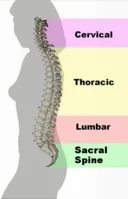
Rotational Injury of the Spine
Rotational Injury of the Spine Every year, many people are irreparably harmed by an injury of the spine. While some spinal cord injuries are recoverable,…


Rotational Injury of the Spine Every year, many people are irreparably harmed by an injury of the spine. While some spinal cord injuries are recoverable,…

Robotic Devices Helping Paraplegic Patients Robotic Devices Helping Paraplegics – A New Study Shows I’m Ed Smith, a Sacramento Spinal Cord Injury Attorney. Around 25 million people in the world today suffer from severe spinal injuries, millions more than the population of any of the globe’s largest metropolises. Many of them are partially or completely paralyzed and successful, mobility regaining treatments can be quite rare. A recent study led by Dr. Miguel Nicolelis of Duke University, however, might point to a brighter future for some of these patients. Brain Training…

Management of Substance Abuse after Trauma I’m Ed Smith, a Sacramento Brain Injury Lawyer. Substance abuse, especially alcohol intoxication, is the underlying cause of almost…

Functional Outcomes in Spinal Cord Injuries I’m Ed Smith, a Sacramento Personal Injury Lawyer. The biggest question often posed is whether or not the patient…